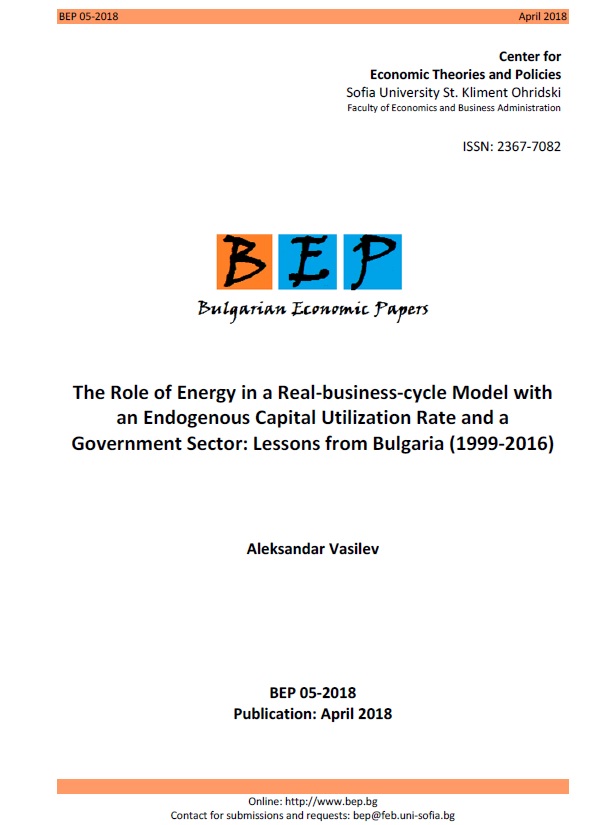The Role of Energy in a Real-business-cycle Model with an Endogenous Capital Utilization Rate and a Government Sector: Lessons from Bulgaria (1999-2016)
The Role of Energy in a Real-business-cycle Model with an Endogenous Capital Utilization Rate and a Government Sector: Lessons from Bulgaria (1999-2016)
Author(s): Aleksandar VasilevSubject(s): Economy, National Economy, Energy and Environmental Studies
Published by: Софийски университет »Св. Климент Охридски«
Keywords: Business uctuations; capital utilization rate; endogenous depreciation rate; energy use; energy prices; Bulgaria
Summary/Abstract: We introduce a pro-cyclical endogenous utilization rate of physical capita1 stock into a real-business-cycle model augmented with a detailed government sector. We calibrate the model to Bulgarian data for the period following the introduction of the currency board arrangement (1999-2016). We investigate the quantitative importance of the endogenous depreciation rate, and the capital utilization mechanism working through the use of energy for cyclical uctuations in Bulgaria. In particular, a positive shock to energy prices in the model works like a negative technological shock. Allowing for variations in factor utilization and the presence of energy as a factor of production improves the model performance against data, and in addition this extended setup dominates the standard RBC model framework with constant depreciation and a fixed utilization rate of physical capital, e.g., Vasilev (2009).
Journal: Bulgarian Economic Papers
- Issue Year: 2018
- Issue No: 5
- Page Range: 2-23
- Page Count: 22
- Language: English

